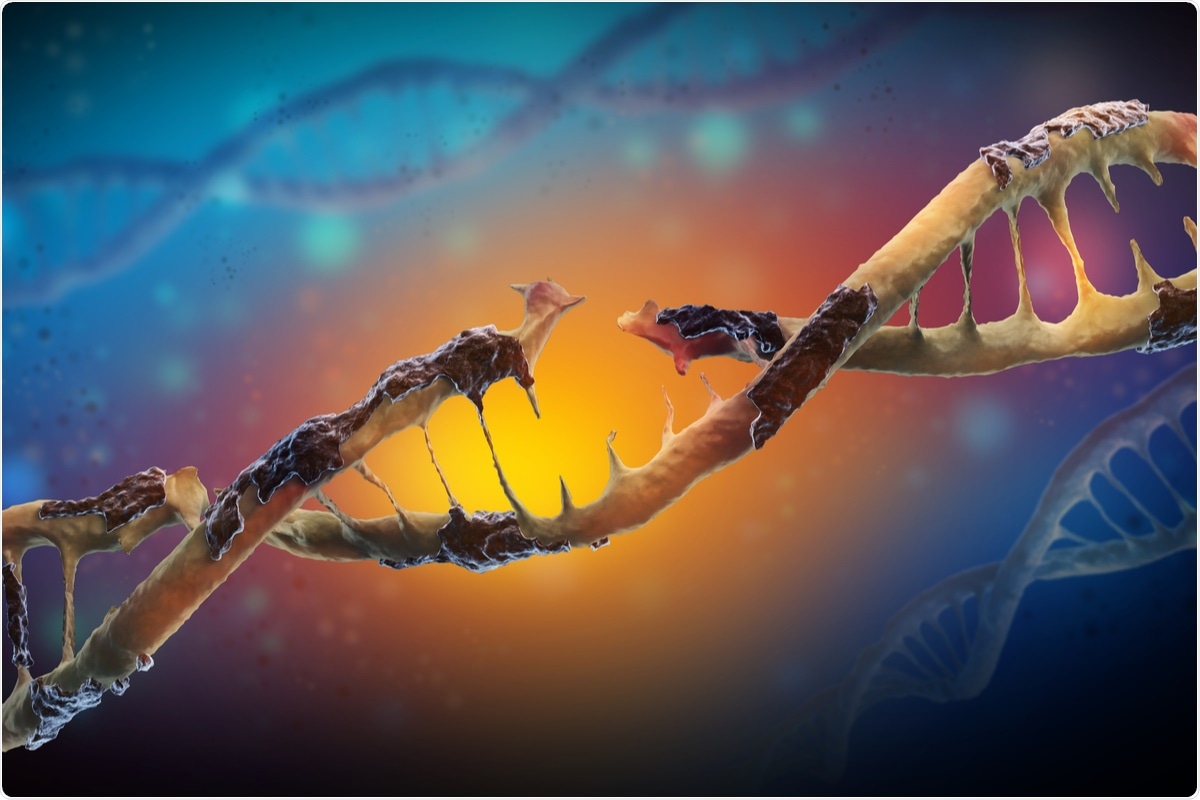Recent data indicates that individuals are experiencing coronavirus disease 2019 (COVID-19) symptoms long after clearing severe acute respiratory syndrome coronavirus 2 (SARS-CoV-2) infection, which suggests the virus has profound consequences to host cells.
 Study: SARS-CoV-2 triggers DNA damage response in Vero E6 cells. Image Credit: Festa/ Shutterstock
Study: SARS-CoV-2 triggers DNA damage response in Vero E6 cells. Image Credit: Festa/ Shutterstock

 This news article was a review of a preliminary scientific report that had not undergone peer-review at the time of publication. Since its initial publication, the scientific report has now been peer reviewed and accepted for publication in a Scientific Journal. Links to the preliminary and peer-reviewed reports are available in the Sources section at the bottom of this article. View Sources
This news article was a review of a preliminary scientific report that had not undergone peer-review at the time of publication. Since its initial publication, the scientific report has now been peer reviewed and accepted for publication in a Scientific Journal. Links to the preliminary and peer-reviewed reports are available in the Sources section at the bottom of this article. View Sources
RNA viruses, such as SAR-CoV-2, are renowned for activating the DNA damage response (DDR) pathway and inducing DNA damage due to their replication cycle within host cells. The signaling pathways ataxia-telangiectasia mutated (ATM), ataxia-telangiectasia and RAD3-related (ATR), and DNA protein kinase (DNA-PK) mediate the DDR. The DDR pathway functions as a crucial part of an intracellular defense system that activates when lesions are detected on the DNA to aid in the repairing of damaged DNA.
When there is a failure in DNA repair, apoptosis is induced, or DNA damage tolerance or translesion synthesis (TLS) is activated, which permits the cell's survival even though DNA damage is present. A study available on the preprint server bioRxiv* examined the ability of SARS-CoV-2 to impact DNA damage response and telomere stability in Vero E6 cells.
A preprint version of the study is available on the bioRxiv* server while the article undergoes peer review.
How was the procedure prepared?
The Vero E6 cells were infected with SARS-CoV-2 and incubated for 48 hours before further downstream processing. The Vero E6 cells were incubated for 10 minutes with RLT buffer containing 2-Mercaptoethanol, to extract the RNA from the infected cell lysates.
The harvested RNA was then quantified via the Nanodrop 2000. Then it was diluted until the concentration of RNA was 10ng/µl in each sample. Quantitative reverse transcriptase-polymerase chain reaction (RT-qPCR) was then performed. Telomere lengths were then measured using primers that detect telomeric repeats.
What did the authors find?
Following the infection with SARS-CoV-2, the ATR DDR was activated. A substantial increase in the transcription expression of ATR and checkpoint kinase 1 (CHK1), the downstream effector molecule of ATR, and elevated phosphorylation of CHK1 protein, indicated activated ATR DDR. Within infected cells, there was no increase of the total ATR protein levels or phosphorylation of the ATR protein, which suggests the comprehensive elevation in ATR levels corresponding to the elevated mRNA levels could have materialized before the 48-hour testing time. Levels of CHK1 protein and total ATR were observed to be reduced at 48 hours.
H2AX phosphorylation protein was also observed to increase, despite an insufficient increase in ATM transcript expression. It was concluded that the ATR DDR pathway is activated in host cells when a SARS-CoV-2 infection occurs, which may impart an unknown proliferation potential to its infectious cycle.
Breaks in the host double-strand DNA drive ATR activation with retroviral infections such as HIV during viral DNA integration, which leaves single-strand gaps. Infectious bronchitis virus (IBV), an RNA virus of the same family as SARS-CoV-2, has been shown to manipulate the ATR DDR to propel their infection cycle.
It was observed that within 48 hours, the telomere lengths within SARS-CoV-2 infected cells had relatively shortened compared with the uninfected control cells. Also, the expression of TRF2, which functions to protect telomers, was significantly suppressed in the SARS-CoV-2 infected cells.
Concluding insights
COVID-19 has infected millions of people worldwide and has unknown potential for long-lasting health complications. It is now becoming vital that the pathobiological consequences in recovered patients are studied, especially with the continuous emergence of new strains.
This study shows that SARS-CoV-2 infection in Vero E6 cells affects telomere function and triggers ATR DDR, which are closely associated with genome stability.

 This news article was a review of a preliminary scientific report that had not undergone peer-review at the time of publication. Since its initial publication, the scientific report has now been peer reviewed and accepted for publication in a Scientific Journal. Links to the preliminary and peer-reviewed reports are available in the Sources section at the bottom of this article. View Sources
This news article was a review of a preliminary scientific report that had not undergone peer-review at the time of publication. Since its initial publication, the scientific report has now been peer reviewed and accepted for publication in a Scientific Journal. Links to the preliminary and peer-reviewed reports are available in the Sources section at the bottom of this article. View Sources